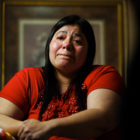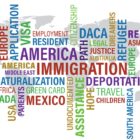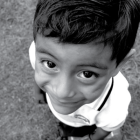
This story originally appeared on iWatchnews.org by the Center for Public Integrity
Immigration officials, advocates clash over policies
A new report is adding fuel to a growing debate over the impact of deportations of illegal immigrants who have roots in communities and U.S.-born children. Between January and June of 2011, immigration officials deported more than 46,400 people who said they were parents of children who were born in the U.S. and therefore U.S. citizens, according to a new study for Congress prepared by U.S. Immigration and Customs Enforcement, or ICE. No solid information exists to measure what happens to deported parents’ children. Some leave with their parents, others remain here with family members or on their own and some may go into foster care. In 2009, the Department of Homeland Security issued a report with an estimate that about 100,000 parents of U.S. children were deported over the course of a decade between 1998 and 2007. Congress directed ICE to begin tracking numbers to better gauge the extent of this phenomenon.






